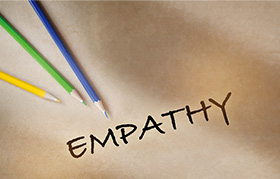
AI Company ‘Muhayu’ Dreaming for Soft Factory
Focus on 'Intelligence' Instead of 'Artificial'
A 'Killer' AI for Plagiarism and GPT Abuse
Lee Kyu-yeol | No.399 (August 2024 Issue 2)
Article at a Glance
Muhayu, an AI company that developed Copy Killer, the No. 1 plagiarism checking tool in Korea, has grown by focusing on five opportunities.
1. Even when skepticism about AI was widespread, it continued to research and develop AI with the belief that the essence of AI lies in intelligence.
2. Predicting that plagiarism would become a social problem as the search market grew and information became more accessible, it developed a plagiarism checking tool.
3. Developed a unique plagiarism detection technology, gradually built a comprehensive database, and established branding as the first plagiarism detection service in Korea to create an entry barrier against large companies.
4. It initially received positive responses from customers, such as students in the B2C market which became an incentive for B2B organizations such as institutions to purchase.
5. After establishing itself as an AI company, it expanded its market by listening to customers' requests to develop specialized services.
Korean university students typically go through a rite of passage before submitting an assignment. They upload their work to Copy Killer to check it for plagiarism. The same goes for graduate students writing their thesis. They anxiously upload their carefully written thesis to Copy Killer. If Copy Killer determines that the plagiarism rate is within 5%, they pat themselves on the back and submit their thesis.
The Hwang Affair in 2005 (a case of scientific misconduct and ethical issue aroused by a famous South Korean biologist Hwang Woo-Seok, who claimed to first clone the human embryonic stem cells) traumatized the Korean academia and spread awareness that plagiarism is a serious offense. It is now common practice to check for plagiarism, not only in thesis but also in the weekly assignments that students turn in.
Launched in 2011, Copy Killer is an AI tool that prevents plagiarism and promotes ethical research. About 10 million people in 3,485 organizations, including public institutions, universities, and private companies, use Copy Killer, with a share of more than 96% in domestic four-year universities. In particular, it has made a name for itself outside of school by catching plagiarized papers of celebrities. National taekwondo athlete Moon Dae-sung, star lecturer Seol Min-seok, and singer Hong Jin-young sparked controversy when their plagiarism was revealed through Copy Killer.
In June 2023, Muhayu, the company behind Copy Killer, introduced GPT Killer, a tool to detect the use of generative AI. Muhayu's customers asked the company to create a solution to filter out the use of generative AI such as ChatGPT in papers, assignments, and work. “Prism” and “Monster”, the AI solutions for recruitment, were also born out of customer requests. Both are AI services that apply natural language processing technology (NLP), which is Muhayu's strength.
Shin Dong-ho, the founder of Muhayu, studied AI in the 1990s and designed AI models for search engines in the 2000s. However, the way he remembers AI in the past was very different from the way it is now, like the way people regard AI as a syndrome. "There was a time when people would call you a fraud if you used the word 'AI,'" he says. In the 1980s, there were expectations that AI would develop rapidly, but its limitations were soon revealed.
Despite everyone's skepticism, Shin continued his research and career in AI, believing that "the core of AI is not 'artificial' but 'intelligence,'" and founded Muhayu in 2011. After many challenges, Muhayu has grown to the point where it is ready for an initial public offering (IPO).
What opportunities did Muhayu see in AI that everyone said it couldn't do? Why did it tackle plagiarism instead of search in the early 2010s, when the age of portals was dawning? How did it survive as a unique player in the plagiarism space while tech giants were absorbing so many markets? We analyze five opportunities and growth secrets of AI company Muhayu.
1. Finding opportunities in 'hidden essence'
As an adolescent, Shin's interests were more philosophy than science. He used to sit still and ponder: "How do humans know the world?" He studied on his own, looking through books and realizing that epistemology addresses the question. He went on to familiarize himself with various philosophical positions, including empiricism and rationalism, and finally came to a question: What is the source of knowledge?
Muhayu, an AI company that developed Copy Killer, the No. 1 plagiarism checking tool in Korea, has grown by focusing on five opportunities.
1. Even when skepticism about AI was widespread, it continued to research and develop AI with the belief that the essence of AI lies in intelligence.
2. Predicting that plagiarism would become a social problem as the search market grew and information became more accessible, it developed a plagiarism checking tool.
3. Developed a unique plagiarism detection technology, gradually built a comprehensive database, and established branding as the first plagiarism detection service in Korea to create an entry barrier against large companies.
4. It initially received positive responses from customers, such as students in the B2C market which became an incentive for B2B organizations such as institutions to purchase.
5. After establishing itself as an AI company, it expanded its market by listening to customers' requests to develop specialized services.
Korean university students typically go through a rite of passage before submitting an assignment. They upload their work to Copy Killer to check it for plagiarism. The same goes for graduate students writing their thesis. They anxiously upload their carefully written thesis to Copy Killer. If Copy Killer determines that the plagiarism rate is within 5%, they pat themselves on the back and submit their thesis.
The Hwang Affair in 2005 (a case of scientific misconduct and ethical issue aroused by a famous South Korean biologist Hwang Woo-Seok, who claimed to first clone the human embryonic stem cells) traumatized the Korean academia and spread awareness that plagiarism is a serious offense. It is now common practice to check for plagiarism, not only in thesis but also in the weekly assignments that students turn in.
Launched in 2011, Copy Killer is an AI tool that prevents plagiarism and promotes ethical research. About 10 million people in 3,485 organizations, including public institutions, universities, and private companies, use Copy Killer, with a share of more than 96% in domestic four-year universities. In particular, it has made a name for itself outside of school by catching plagiarized papers of celebrities. National taekwondo athlete Moon Dae-sung, star lecturer Seol Min-seok, and singer Hong Jin-young sparked controversy when their plagiarism was revealed through Copy Killer.
In June 2023, Muhayu, the company behind Copy Killer, introduced GPT Killer, a tool to detect the use of generative AI. Muhayu's customers asked the company to create a solution to filter out the use of generative AI such as ChatGPT in papers, assignments, and work. “Prism” and “Monster”, the AI solutions for recruitment, were also born out of customer requests. Both are AI services that apply natural language processing technology (NLP), which is Muhayu's strength.
Shin Dong-ho, the founder of Muhayu, studied AI in the 1990s and designed AI models for search engines in the 2000s. However, the way he remembers AI in the past was very different from the way it is now, like the way people regard AI as a syndrome. "There was a time when people would call you a fraud if you used the word 'AI,'" he says. In the 1980s, there were expectations that AI would develop rapidly, but its limitations were soon revealed.
Despite everyone's skepticism, Shin continued his research and career in AI, believing that "the core of AI is not 'artificial' but 'intelligence,'" and founded Muhayu in 2011. After many challenges, Muhayu has grown to the point where it is ready for an initial public offering (IPO).
What opportunities did Muhayu see in AI that everyone said it couldn't do? Why did it tackle plagiarism instead of search in the early 2010s, when the age of portals was dawning? How did it survive as a unique player in the plagiarism space while tech giants were absorbing so many markets? We analyze five opportunities and growth secrets of AI company Muhayu.
1. Finding opportunities in 'hidden essence'
As an adolescent, Shin's interests were more philosophy than science. He used to sit still and ponder: "How do humans know the world?" He studied on his own, looking through books and realizing that epistemology addresses the question. He went on to familiarize himself with various philosophical positions, including empiricism and rationalism, and finally came to a question: What is the source of knowledge?
15,000개의 아티클을 제대로 즐기는 방법
가입하면, 한 달 무료!
걱정마세요. 언제든 해지 가능합니다.
- This content was originally written in Korean in the DBR, and translated into English by the original author with the aid of AI
- The DBR has all legal authority over this content. Please note that unauthorized use and distribution may be subject to legal sanctions

Copyright Ⓒ 동아비즈니스리뷰. All rights reserved. 무단 전재, 재배포 및 AI학습 이용 금지
인기기사
 경제·경영 질문은
경제·경영 질문은
Askbiz에게 물어보세요
K-FOCUS TOP 5
K-Business Trends to Watch
회원 가입만 해도, DBR 월정액 서비스 첫 달 무료!
15,000여 건의 DBR 콘텐츠를 무제한으로 이용하세요.










